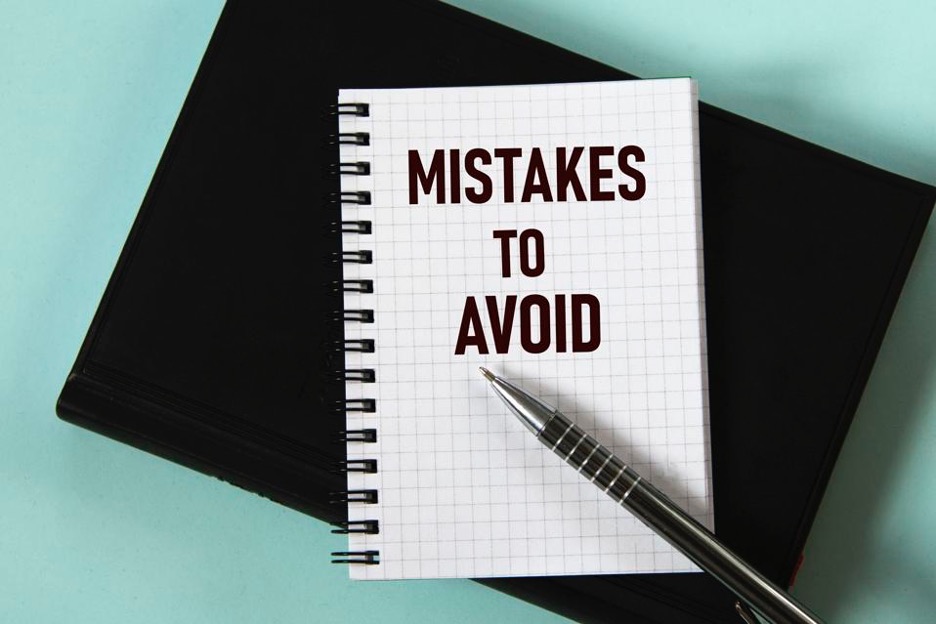Most personal finance advice fits on just an index card. But the list of personal finance mistakes would make a CVS receipt jealous.
Most money mistakes are relatively small. If they were bigger, you’d pay more attention. However, some money mistakes look small but have a much more significant impact because of what they involve. Today, I want to share five money mistakes you can quickly fix.
- Not Earning Interest On Savings
When was the last time you reviewed your bank accounts? If you’re not using an online bank with a high-yield savings account, there’s a good chance you’re not earning much interest from your bank.
Brick-and-mortar banks are notorious for paying very little interest. As of January 2024, a Bank of America Advantage Savings account pays a paltry 0.01% APY PY . Many high-yield savings accounts are paying over 5% right now . Take a moment to review your savings account and see what you’re earning. If it’s less than 4%, consider moving it to a bank that will pay you over 5% right now.
- Not Investing Enough
Unless you wish to work until your final days, you will want to ensure you are investing enough for your future. The simplest way to determine this is to figure out how much you’ll need in retirement and then invest in a manner that gets you there.
How much will you need? Many experts recommend using the 4% rule. This rule states that spending just 4% of your nest egg each year should last you to the end. If you expect to need $100,000 a year, you’ll want to have saved up to $2.5 million.
Next, you’ll need to figure out how much you’ll save to get your nest egg up to $2.5 million. If you save $725 a month for 40 years and your investments return 8% a year, you’ll end up with almost $2.55 million.
Are you saving enough?
- Not Fully Funding Your Emergency Fund
Is your emergency fund adequately funded? Experts recommend saving at least 6-12 months worth of expenses. If you don’t have six months, aim to save up six months in the next twelve months. This is the bare minimum you need to weather any significant emergency. It’s also not so large a sum over too short a time that it feels insurmountable.
Put those funds in a savings account; do not invest it in anything volatile like the stock market. Once you reach six months, consider saving even more. You can adjust your needs based on your situation. You may wish to add more months if you work in a more unpredictable industry. If you drive an older car or anticipate needing a new major appliance in your home, adjust it up. A fully-funded emergency fund enables you to make decisions from a position of strength. You won’t need to scramble to find money and make panicked decisions.
- Not Reviewing Your Credit Reports Regularly
Your credit score is one of the most critical numbers in your financial life. Your score depends on the accuracy of your credit report at the three major credit bureaus. When was the last time you reviewed them for accuracy? What about fraud? You should review them at least once a year and can do so by going to AnnualCreditReport.com . If you see anything wrong, you’ll want to dispute it immediately. The dispute process can take a long time, so your best defense is to start it as early as possible.
- Not Reviewing Your Insurance Policies
When was the last time you took a close look at your insurance policies? This includes your homeowner’s or renter’s policy, automobile insurance policy, life insurance policy, umbrella insurance policy, and others.
First, you want to make sure you have adequate coverage. As you age and earn more, you have more to protect. You’ll want to ensure your policies give you enough protection.
Next, have you updated your beneficiaries? Our lives change, and sometimes our beneficiaries do too. You’d much rather set this yourself than have the state decide for you. Finally, be sure to shop around your policy. This is especially true for coverages that are easy to move around, like your umbrella or auto insurance policies. Don’t always go with the lowest-cost insurance provider, though; you’ll want to do your due diligence on the company to make sure they aren’t going to deny every claim you ever make.
Conclusion
As you can see, these mistakes are relatively easy to fix, but putting them off can have massive consequences that are difficult to fix after the fact. With just a few minutes today, you can fix these oversights and ensure you don’t put yourself in that position in the future.
© 2024 Forbes Media LLC. All Rights Reserved
This Forbes article was legally licensed through AdvisorStream.
Securities and advisory services offered through LPL Financial, a registered investment advisor. Member FINRA/SIPC.
The LPL Financial registered representative(s) associated with this website may discuss and/or transact business only with residents of the states in which they are properly registered or licensed. No offers may be made or accepted from any resident of any other state.
